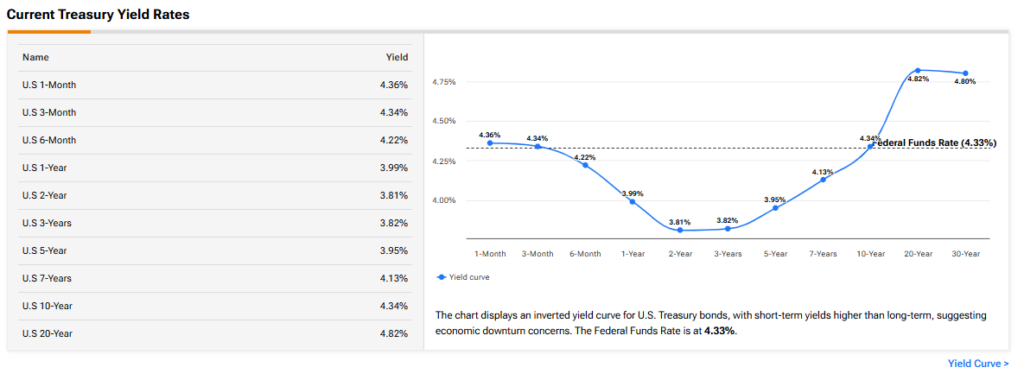Finance ministers from around the world are gathering in Washington, DC this week for the International Monetary Fund and World Bank spring meetings, as the Trump administration pursues an aggressive slate of negotiations with trading partners. This meeting comes at a critical time, with economic forecasters increasingly pessimistic about global growth prospects following Trump’s tariff policy announcements.
Confident Investing Starts Here:
- Easily unpack a company's performance with TipRanks' new KPI Data for smart investment decisions
- Receive undervalued, market resilient stocks straight to you inbox with TipRanks' Smart Value Newsletter
Deteriorating Growth Forecasts
The gloomy outlook is anticipated to cast a shadow over the proceedings, with the IMF set to release its World Economic Outlook on Tuesday. IMF Managing Director Kristalina Georgieva has already signaled that the report will include “notable markdowns but not recession” for global growth projections.
Forecasters have already articulated their expectations. For example, Goldman Sachs now expects year-over-year global GDP growth of just 1.3%, less than half of the 3% growth seen at the end of last year. Wells Fargo Investment Institute (WFII) has projected a 1% growth forecast, while J.P. Morgan has estimated a potential 0.3% contraction, on a quarterly basis. Meanwhile, 82% of investors surveyed by Bank of America this month expect the global economy to weaken.
These projections highlight how even countries securing favorable trade deals with the U.S. remain vulnerable to broader economic fallout. Japan, which the Trump administration has prioritized in negotiations, illustrates this economic interconnectedness. While Japanese exporters would benefit from lower U.S. tariffs, they could still suffer if high tariffs on other major trading partners like China, Vietnam, and Mexico damage those economies.
Key Points to Watch for This Week
During the IMF-World Bank meetings, analysts will closely monitor several key indicators. The Global Financial Stability Report will likely address recent strains in the U.S. bond market. At the same time, the weakening dollar has raised questions about diminishing appetite for U.S. assets following the tariff announcements.

Perhaps, most telling will be the IMF’s five-year forecast for global growth, which has steadily deteriorated in recent years. A negative report would represent a stark reversal from last year’s optimism about productivity gains from technologies like AI. Instead, analysts fear we may see the most pessimistic medium-term forecast in decades.
As finance ministers gather amid rising trade tensions and deteriorating growth projections, the challenge remains that, in today’s interconnected global economy, even bilateral trade disputes can trigger widespread economic consequences that no nation can fully escape.
Looking for a trading platform? Check out TipRanks' Best Online Brokers , and find the ideal broker for your trades.
Report an Issue















